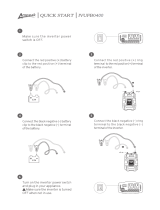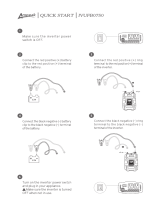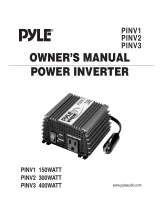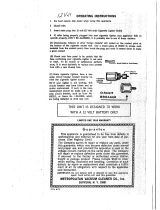
14
120 DAY/2 YEAR LIMITED WARRANTY PROGRAM
This limited warranty program is the only one that applies to this product,
and it sets forth all the responsibilities of Vector Manufacturing, Ltd.,
regarding this product. There are no other warranties, other than those
described herein.
This Vector Manufacturing, Ltd. product is warranted, to the original
purchaser only, to be free of defects in materials and workmanship for 120
days from the date of purchase without additional charge. This warranty
may be extended to two years from date of purchase by paying an Extended
Warranty fee (see below). The warranty does not extend to subsequent
purchasers or users. Vector Manufacturing, Ltd. will not be responsible for
any amount of damage in excess of the retail purchase price of the product
under any circumstances. Incidental and consequential damages are
specifically excluded from coverage under this warranty.
This product is not intended for commercial use. This warranty does not
apply to accessories or damage to units from misuse or incorrect installation.
Misuse includes wiring or connecting to improper polarity power sources.
RETURN/REPAIR POLICY: Defective products, other than accessories, may
be returned postage prepaid to Vector Manufacturing. Any defective
product, other than accessories, that is returned to Vector Manufacturing
within 30 days of the date of purchase will be replaced free of charge.
If such a product is returned more than 30 days but less than two years from
the purchase date, Vector Manufacturing will repair the unit or, at its option,
replace it free of charge. If The Extended Warranty was activated, this repair
or replacement period extends to four years from the purchase date.
If the unit is repaired, new or reconditioned replacement parts may be used,
at Vector Manufacturing's option. A unit may be replaced with a new or
reconditioned unit of the same or comparable design. The repaired or
replaced unit will then be warranted under the terms of the remainder of the
warranty period.
The customer is responsible for the shipping charges on all returned items.
During the warranty period, Vector Manufacturing, Ltd. will be responsible
for the return shipping charges.
LIMITATIONS: This warranty does not cover accessories, bulbs, fuses and
batteries, defects resulting from normal wear and tear (including chips,
scratches, abrasions, discoloration or fading due to usage or exposure to
sunlight), accidents, damage during shipping to our service facility,
alterations, unauthorized use or repair, neglect, misuse, abuse, failure to
follow instructions for care and maintenance, fire, flood, and Acts of God.





















